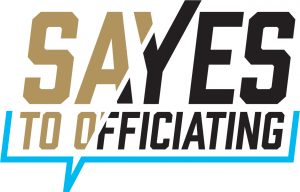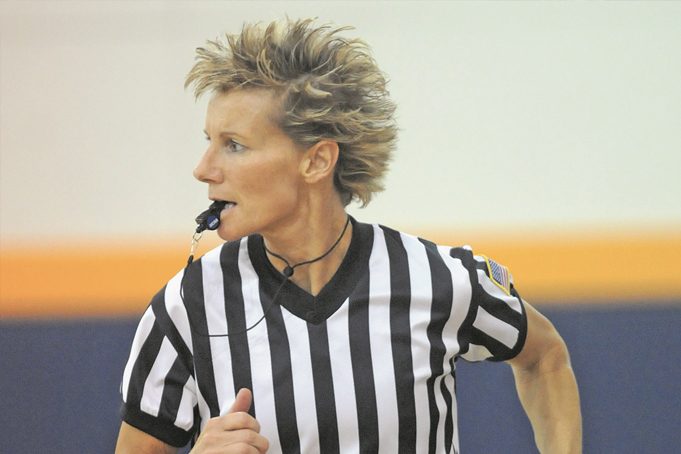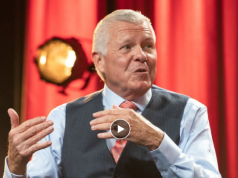There has always been a sizable contingent of teachers within the officiating community. Part of the reason is circumstances; teachers are finished with work and often available to handle the abundance of weekday afternoon games on the calendar. And many teachers are also coaches with backgrounds in sports; it’s quite common for someone who coaches one sport to officiate another.
But while availability certainly matters — just ask any assigner — there is more to it than that. Good teachers bring certain qualities and experiences to the job that transition effectively to the field or court.
In addition to working for the Iowa High School Athletic Association as director of officials, Roger Barr officiated basketball, baseball and football for 28 years. “I think the men and women that teach in our schools and work with students daily are seeing what’s going on and what makes different kids tick,” Barr said. “Sometimes the official that’s on the outside and maybe has an everyday job behind a computer all day doesn’t have that contact one-on-one with students in the classroom.”
Barr said one of the best communicators he ever encountered was the umpire on one of his football crews. “He could talk to them and they got it,” Barr said. “I’m not to going to say every kid. But 95 percent of the kids, he had them eating out of his hand by the end of the night. He was a well-respected teacher as well as a coach. That’s why he was successful.”
Pat Gebhart is an assistant executive director with the Pennsylvania Interscholastic Athletic Association (PIAA) and oversees its officiating program. Prior to joining the PIAA he had a long career with the Pennsylvania State Police and spent a quarter century officiating basketball.
Gebhart believes experiences in the classroom give teachers unique insight on the field of competition. “I think they do have an advantage maybe over an official who is not in education,” he said. “They’ve seen students and (understand) the general conduct and attitude of students from seeing them in the classroom. It makes them better equipped to handle any adversity they might face during a contest.
“They also have a general understanding of what students experience throughout the day and the frustrations they may have which might come out on the competition surface.”
Mike Whaley, former assistant director with the Oklahoma Secondary School Activities Association (OSSAA), served as that association’s director of officiating for many years. Before joining the OSSAA he spent more than three decades as a teacher, football coach and basketball official.
Whaley points out that educators are trained to understand that one size most definitely does not fit all when it comes to teenagers and younger children. “They’ve had some type of professional training in the differences in children,” he said. “How children mature differently, how different levels of children act differently.” Whaley points out that today’s children and teenagers react differently to situations than they did a generation ago. He said officials who are teachers have an advantage when it comes to “getting up to speed” in that regard.
“When you’re around them on a regular basis, you’re much more in tune with what’s trendy to them,” he said, “and what’s trendy in their behavior. I would hate to think that some of our officials don’t realize that we’re not in the same era that they were in when they were in high school.”
Ironically, in some parts of the country, fewer educators are choosing to pick up a whistle. According to Gebhart, anecdotal evidence suggests that as recently as 25 years ago, 75 percent of the registered officials in Pennsylvania were educators. Today that number is likely closer to 25 percent, in part because teacher salaries have increased significantly in some parts of the state.
Teaching skills are an attribute when it comes to working with newer or younger officials who are, often, in need of support and encouragement. A senior official with a teaching background will often find it easier to step into a tutoring role and provide support to a less experienced partner.
Many years ago, I had the chance to work several football games with a veteran, now deceased, who was a career educator and who would invariably handle some of the top high school assignments in our area each season as the referee. On one occasion we were part of a three-official crew assigned to handle a junior high game. I was the referee and he was the umpire.
It could have been awkward, but he did everything he could to make me feel comfortable and confident. He let me manage the game but was never far away if I needed him. But only if I needed him. In short, he let me officiate.
Sometime afterward the assigner asked me if there was anything he could do that would make things easier for young officials assigned to the referee position.
“Sure there is,” I replied. “Be sure to put Lenny on his crew.”
 The 2018 Sports Officiating Summit, in New Orleans July 29-31, will focus heavily on recruitment and retention of officials. Teachers and many other groups could prove to be sources of new officials and the Summit will investigate how to reach all those sources more effectively.
The 2018 Sports Officiating Summit, in New Orleans July 29-31, will focus heavily on recruitment and retention of officials. Teachers and many other groups could prove to be sources of new officials and the Summit will investigate how to reach all those sources more effectively.
If you are an association leader, lead official or administrator of any kind, consider attending the Summit this year. We need your voice and experience to find solutions.
Explore the Summit program and get registration information at www.sportsofficiatingsummit.com.
What's Your Call? Leave a Comment:
Note: This article is archival in nature. Rules, interpretations, mechanics, philosophies and other information may or may not be correct for the current year.
This article is the copyright of ©Referee Enterprises, Inc., and may not be republished in whole or in part online, in print or in any capacity without expressed written permission from Referee. The article is made available for educational use by individuals.



















